In recent years, there’s been growing awareness about the importance of plant-based diets, with many people turning to vegetarian or vegan lifestyles. One common concern that arises is how to get enough protein, especially for those avoiding meat. Fortunately, high-protein Indian vegetarian foods offer a wide variety of delicious, nutritious, and easily accessible options to ensure you meet your protein needs.
In this in-depth guide, we’ll explore the top high-protein Indian vegetarian foods, discuss their nutritional benefits, and provide tips on how to incorporate them into your diet. Whether you’re a vegetarian, looking to cut back on meat, or just seeking healthy food choices, this guide will help you understand how to fuel your body with plant-based proteins.
Table of Contents
What is Protein and Why is it Important?
Protein is an essential macronutrient that plays a critical role in the body. It plays a key role in building and repairing tissues, producing enzymes and hormones, and boosting the immune system. A sufficient intake of protein is especially important for vegetarians to maintain muscle mass, stay energetic, and ensure proper bodily functions.
The recommended dietary allowance (RDA) for protein varies based on factors such as age, gender, and activity level. On average, an adult requires approximately 46 to 56 grams of protein per day. But can you meet these needs with vegetarian foods alone? The answer is a resounding yes, thanks to the numerous high-protein Indian vegetarian foods available.
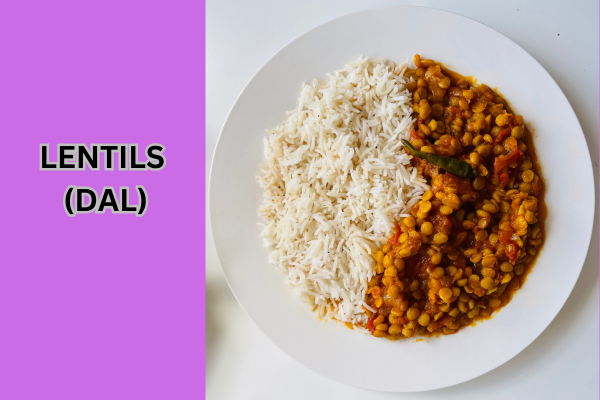
Lentils (Dal)
Lentils, commonly known as dal, are a staple in Indian households and one of the richest sources of plant-based protein. Various types of lentils are used in Indian cooking, such as moong dal, masoor dal, urad dal, and toor dal. Each variety offers between 9 and 18 grams of protein per cooked cup.
Lentils are also rich in fiber, folate, and iron, making them an incredibly nutritious food. They’re versatile and can be cooked into soups, stews, curries, or even sprouted for salads. The protein content of lentils, combined with their affordability and accessibility, makes them one of the most important high-protein Indian vegetarian foods.
Nutritional Value per Cup (Cooked Lentils):
- Protein: 18 grams
- Fiber: 15 grams
- Calories: 230

Chickpeas (Chana)
Chickpeas, or chana, are another protein-packed food often used in Indian cooking. Whether boiled and added to salads, roasted as a snack, or cooked in a curry, chickpeas provide about 14-15 grams of protein per cup. They’re also rich in fiber, iron, and manganese.
Chickpeas are incredibly versatile and can be used in a variety of dishes like chana masala, and hummus, or even as a flour (besan) in dishes like pakoras, cheelas, or laddu.
Nutritional Value per Cup (Cooked Chickpeas)
- Protein: 14 grams
- Fiber: 12 grams
- Calories: 269
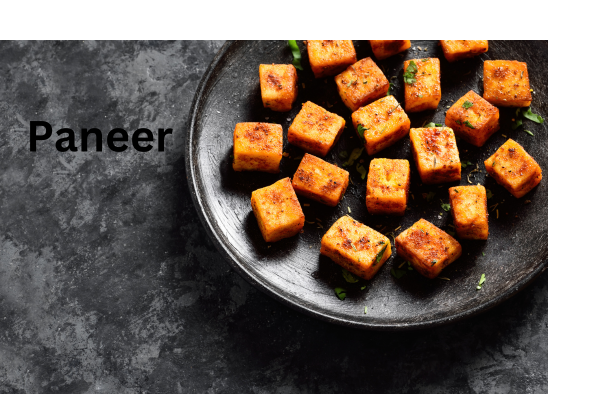
Paneer (Indian Cottage Cheese)
Paneer is a beloved dairy product in Indian cuisine and a fantastic source of protein. With around 18 grams of protein per 100 grams, paneer is a great alternative to meat and can be used in many dishes such as palak paneer, paneer tikka, and matar paneer.
Paneer also provides essential nutrients such as calcium and vitamin D, making it not only a good source of protein but also beneficial for bone health. For vegetarians who consume dairy, paneer is one of the most accessible and flavorful high-protein Indian vegetarian foods.
Nutritional Value per 100 grams (Paneer)
- Protein: 18 grams
- Fat: 20 grams
- Calories: 265
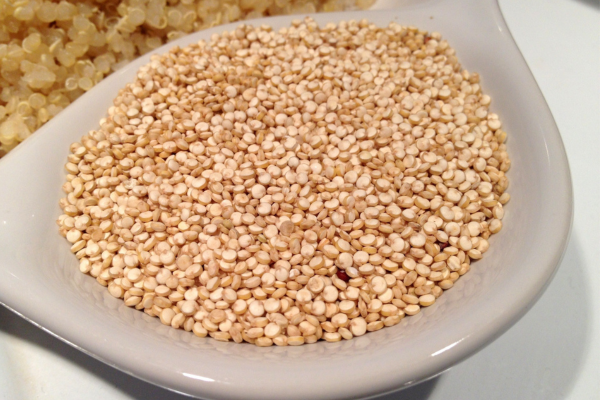
Quinoa
Though quinoa isn’t traditionally an Indian grain, it has become quite popular in Indian kitchens in recent years. Quinoa is classified as a complete protein, as it contains all nine essential amino acids. One cup of cooked quinoa provides about 8 grams of protein, making it a great substitute for rice or used in salads and curries.
For those seeking to incorporate non-traditional ingredients into their meals, quinoa is an excellent choice among high-protein Indian vegetarian foods. It’s gluten-free, rich in fiber, and packed with vitamins and minerals.
Nutritional Value per Cup (Cooked Quinoa)
- Protein: 8 grams
- Fiber: 5 grams
- Calories: 222
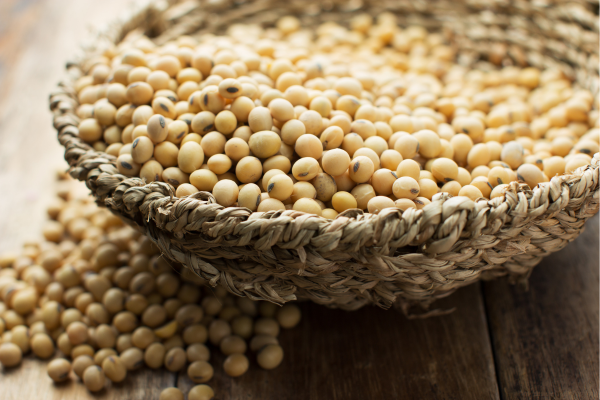
Soy Products (Tofu, Soybean, and Edamame)
Soy products are another great source of plant-based protein, commonly used in Indian vegetarian meals. Tofu, or “soya paneer,” offers about 10 grams of protein per 100 grams, making it an ideal substitute for meat and dairy. Soybeans, on the other hand, are incredibly rich in protein, with about 28 grams of protein per cup.
Edamame (young soybeans) is also a great snack or addition to salads, providing around 17 grams of protein per cup. Including soy products in your diet ensures you’re getting a good amount of protein and other nutrients such as iron and calcium, making them key high-protein Indian vegetarian foods.
Nutritional Value per Cup (Cooked Soybeans)
- Protein: 28 grams
- Fiber: 10 grams
- Calories: 298
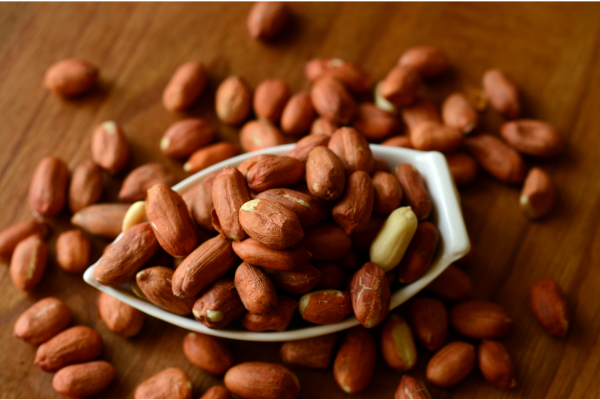
Peanuts
Peanuts are commonly found in Indian cooking, often used in chutneys, snacks, or added to dishes like poha or upma. Peanuts are packed with protein, providing around 7 grams of protein per ounce. They are also a rich source of healthy fats and can help keep you satiated for longer periods. For those looking for an easy snack or a way to add more protein to meals, peanuts are one of the most accessible high-protein Indian vegetarian foods.
Nutritional Value per Ounce (Peanuts)
- Protein: 7 grams
- Fat: 14 grams
- Calories: 161
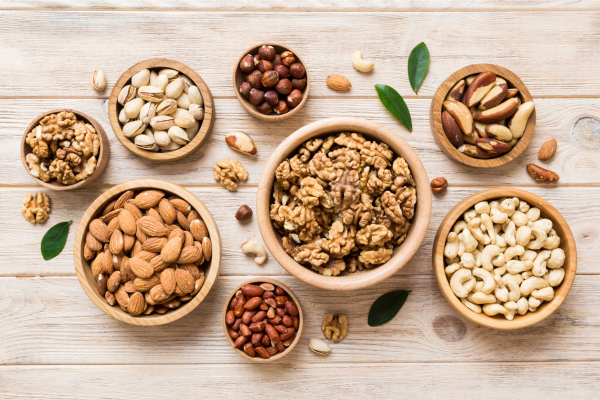
Almonds and Other Nuts
Nuts such as almonds, cashews, and walnuts are excellent sources of protein and healthy fats. Almonds, in particular, provide about 6 grams of protein per ounce and are rich in vitamin E, magnesium, and fiber. Cashews and walnuts also offer considerable amounts of protein and can be added to both sweet and savory dishes.
Incorporating nuts into your diet can help you meet your protein needs while also supporting heart health, making them an important addition to any list of high-protein Indian vegetarian foods.
Nutritional Value per Ounce (Almonds)
- Protein: 6 grams
- Fat: 14 grams
- Calories: 164
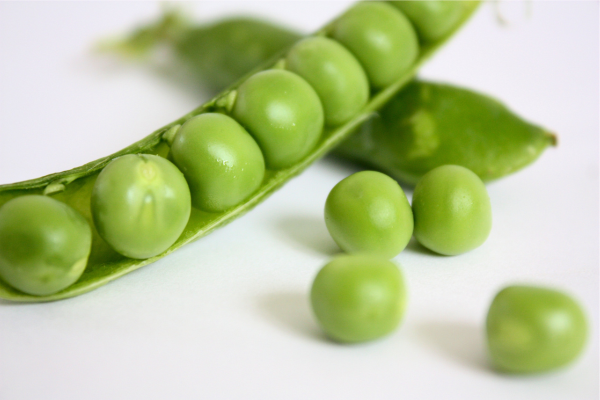
Green Peas
Green peas are another surprising source of protein. A cup of cooked peas contains around 8 grams of protein, along with a variety of vitamins and minerals such as vitamins A, C, K, and folate.
Peas can be used in various Indian dishes like matar paneer, and vegetable pulao, or added to soups and salads for an easy protein boost.
Nutritional Value per Cup (Cooked Green Peas):
- Protein: 8 grams
- Fiber: 9 grams
- Calories: 134
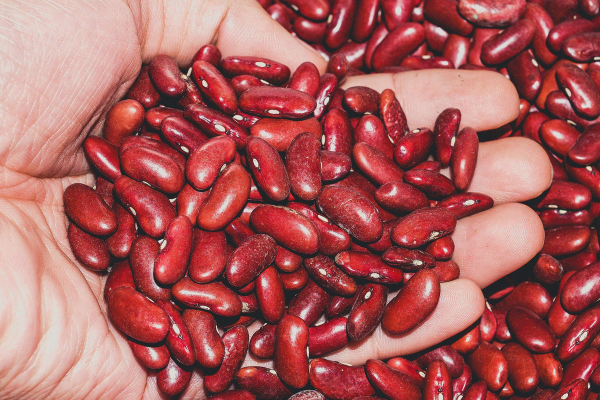
Rajma (Kidney Beans)
Rajma, or kidney beans, is a common ingredient in Indian homes, particularly in the north. It provides about 15 grams of protein per cooked cup. Rajma is a staple in popular dishes like rajma chawal and is also high in fiber, which aids digestion.
For vegetarians, kidney beans are an affordable and nutritious way to increase protein intake, making them one of the best high-protein Indian vegetarian foods.
Nutritional Value per Cup (Cooked Kidney Beans):
- Protein: 15 grams
- Fiber: 11 grams
- Calories: 225

Chia Seeds
Chia seeds, though small, pack a big punch when it comes to nutrition. They contain around 4.7 grams of protein per ounce and are rich in omega-3 fatty acids, antioxidants, and fiber. Chia seeds can be added to smoothies, yogurt, or even used to make puddings for a quick protein-rich snack.
Chia seeds are not traditionally Indian but have been widely adopted in health-conscious Indian diets. Their versatility makes them one of the most convenient high-protein Indian vegetarian foods.
Nutritional Value per Ounce (Chia Seeds):
- Protein: 4.7 grams
- Fiber: 10 grams
- Calories: 137
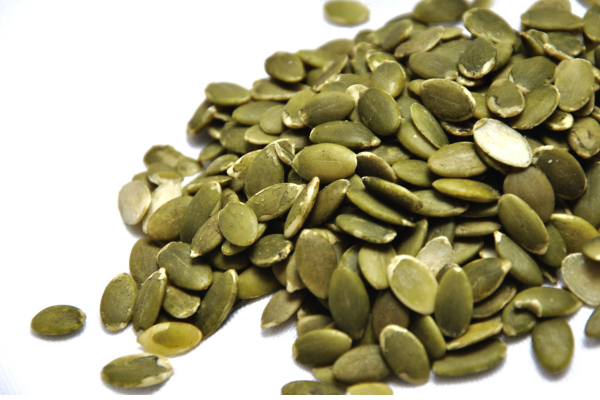
Pumpkin Seeds
Pumpkin seeds are often overlooked, but they are an incredible source of protein, providing around 7 grams of protein per ounce. They’re also rich in magnesium, zinc, and antioxidants. You can snack on roasted pumpkin seeds, sprinkle them on salads, or add them to smoothies.
For those looking to diversify their diet, pumpkin seeds are a fantastic option for high-protein Indian vegetarian foods.
Nutritional Value per Ounce (Pumpkin Seeds):
- Protein: 7 grams
- Fiber: 1.7 grams
- Calories: 151

Sprouts
Sprouts, such as moong or chana sprouts, are highly nutritious and a great source of protein, providing around 3-4 grams of protein per 100 grams. They’re also rich in vitamins and minerals and are considered one of the most wholesome high-protein foods in the Indian vegetarian diet.
Sprouts can be enjoyed raw in salads, added to chaats, or lightly stir-fried for a crunchy snack. They are also easily digestible, making them ideal for people of all ages.
Nutritional Value per 100 grams (Moong Sprouts):
- Protein: 4 grams
- Fiber: 2 grams
- Calories: 30
Conclusion: Why Choose High-Protein Indian Vegetarian Foods?
Incorporating high-protein Indian vegetarian foods into your diet is not only essential for vegetarians but also beneficial for anyone seeking to improve their health. Protein is crucial for muscle repair, energy production, and overall bodily functions. Indian cuisine offers a variety of delicious and versatile vegetarian options to ensure you meet your daily protein needs without resorting to meat.
From lentils and chickpeas to paneer and soy products, there is no shortage of high-protein Indian vegetarian foods to choose from. Whether you prefer traditional Indian recipes or are looking to experiment with newer ingredients like quinoa and chia seeds, there are countless ways to add plant-based protein to your meals. By incorporating these high-protein Indian vegetarian foods into your daily diet, you can enjoy a balanced, nutritious, and flavorful lifestyle that supports optimal health

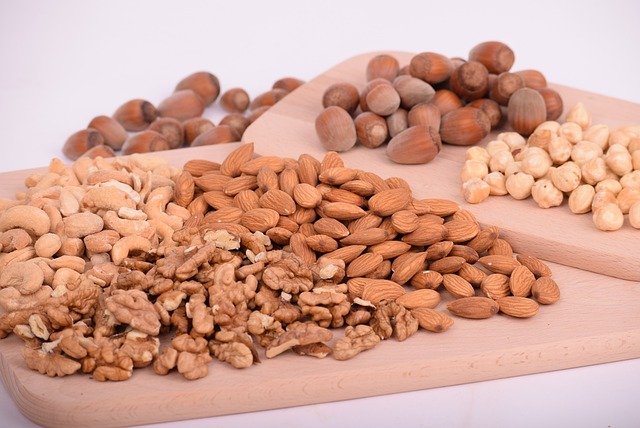
2 thoughts on “12 High-Protein Indian Vegetarian Foods: A Comprehensive Guide for Optimal Nutrition”